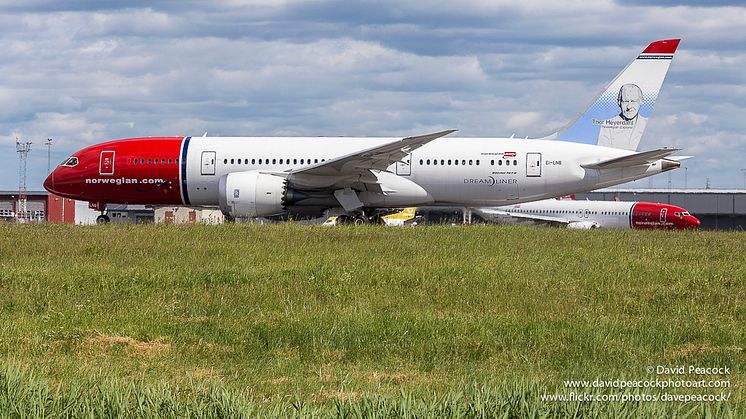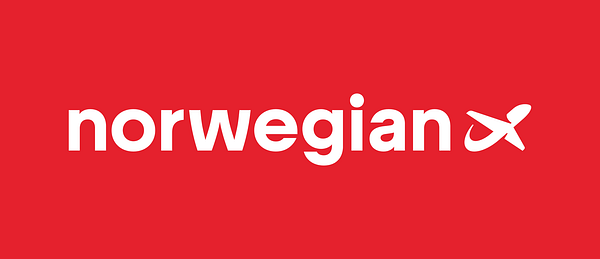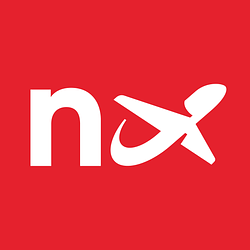
Press release -
Norwegian Named Most Fuel-Efficient Airline on Transatlantic Routes
The International Council on Clean Transportation (ICCT) today released a study that compares the fuel efficiency, and therefore carbon intensity, of the top 20 airlines on transatlantic routes between the United States/Canada and Europe in 2014. Norwegian was named the most fuel-efficient airline on transatlantic routes, on average achieving 40 passenger kilometers per litre (pax-km/L) of fuel with its predominately Boeing 787-8 fleet.
According to the study, Norwegian’s modern long-haul fleet is significantly more fuel-efficient than any of the other 19 leading transatlantic airlines. The second most fuel-efficient airline burned 14% more fuel per passenger kilometer than Norwegian. The three least-efficient airlines (Lufthansa, SAS, and British Airways) were collectively responsible for one-fifth of transatlantic available seat kilometers and burned 44% to 51% more fuel per passenger kilometer than Norwegian.
The ICCT's program director for aviation, Dan Rutherford, a coauthor of the report said: "It’s surprising to see such large differences in fuel efficiency among airlines on long-haul flights over the Atlantic. The airline you fly, and the aircraft they choose to operate, really matters if you’re concerned about the climate."
The study from ICCT is the first analysis to combine the highest quality publicly available and commercial operations data with sophisticated aircraft fuel burn modeling to benchmark the fuel efficiency of carriers on a passenger kilometer basis. The study explains the fuel efficiencies of individual carriers and highlights the most important drivers of efficiency in the aggregate.
To download the report and fact sheet: www.theicct.org/transatlantic-airline-efficiency-2014.
Topics
Categories
Norwegian in the UK
- Norwegian first launched UK flights in 2003 and now operates from London Gatwick, Edinburgh, Birmingham and Manchester Airports to 34 destinations worldwide.
- Norwegian is the third largest airline at London Gatwick, with 3.4 million yearly passengers as of June 2015, and with 130 pilots and 300 cabin crew working from its Gatwick base
- In 2014, Norwegian introduced the UK’s first low-cost, long haul flights to the U.S. flying directly from Gatwick to New York, Fort Lauderdale and Los Angeles
- Norwegian is the only airline to offer free in-flight WiFi on UK flights to 29 European destinations


